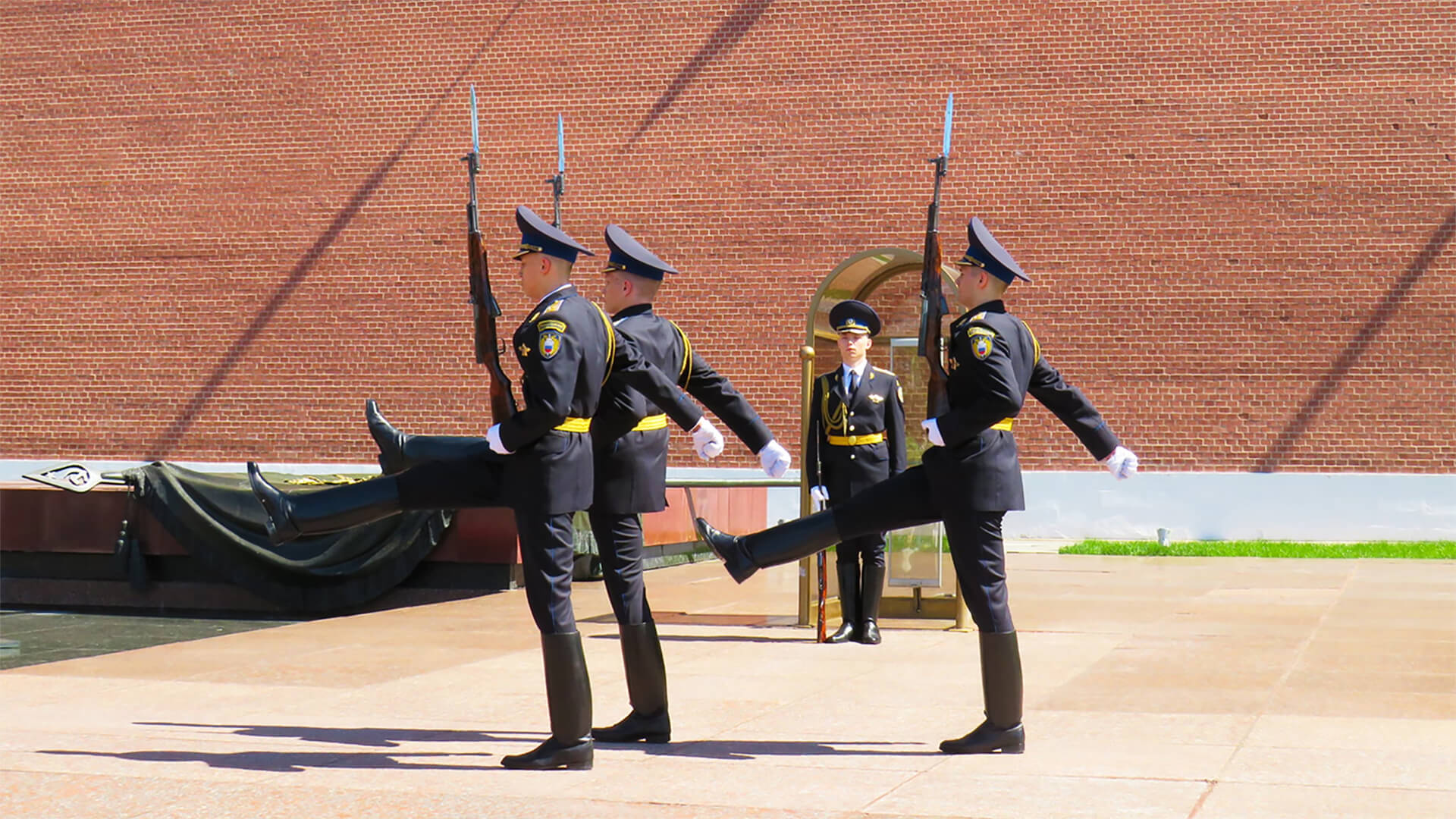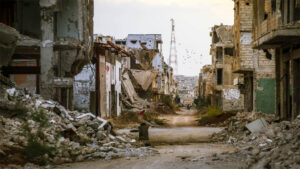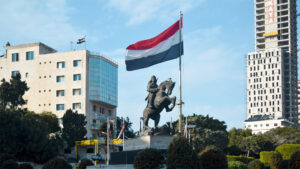Much has changed since I left for New Zealand a few days ago, and I’m sure everyone has already caught up on the Syrian unraveling. So, let’s dive into the history of Syria and the consequences that all this will have, specifically what this means for Russia.
Think of Syria as the runt of the litter. Post-World War I, all the big dogs in the region carved out the valuable territory and what was left..became Syria. No matter which way the cookie crumbles, the Syrian experience was never going to be pretty. The overthrow of the Assad regime is just another chapter in that rough history.
Russia fits into this picture as a decade-long supporter of Assad, which included military support and intervention via the Wagner Group. With Assad’s overthrow, Russia’s position in Syria is fading, and quick. Syria’s collapse means Russia’s influence in the Middle East and Africa will be threatened, since supply routes to these regions will be cut off.
In the coming days and weeks, I would expect to see a series of embarrassing strategic losses for Russia. We’re even seeing Turkey jumping on the opportunity to complicate Russia’s withdrawal from the region. This could even spell trouble for the Russian’s broader military presence.
Here at Zeihan on Geopolitics, our chosen charity partner is MedShare. They provide emergency medical services to communities in need, with a very heavy emphasis on locations facing acute crises. Medshare operates right in the thick of it, so we can be sure that every cent of our donation is not simply going directly to where help is needed most, but our donations serve as a force multiplier for a system already in existence.
For those who would like to donate directly to MedShare or to learn more about their efforts, you can click this link.
Transcript
Hey, everybody. Peter. Zain here. Coming to you from Egmont National Park in New Zealand, that’s Mount Taranaki, this is Holly Hutt. This is where I’m spending the night. A little chilly here today. Anyway, things are on fire in Syria. I apologize that, apparently the country fell, one was airborne. And that I wasn’t there to, like, tell you what it all meant.
But we recorded a couple things before I got some of those already out. Some of them are coming. Today we’re gonna talk about consequences. We’re going to start with the country. That is really the only reason that Syria has lasted this long. Now, let’s dial it back. Okay. Series. An artificial construct. The territory that is now Syria hasn’t been a functional government in centuries.
The only reason we are aware of this thing called Syria is because in the aftermath of the mandate period, that’s after World War one. The colonies were basically broken up. And independent states were allowed to rise, and everyone in the region basically took the good part. So Mesopotamia went one way, became a rock. Saudi Arabia found oil in its own way.
Egypt got independence and picked a fight. Didn’t win it anyway, in the case of Syria, Syria was what was left over. The Turks wouldn’t took the chunks that they wanted, specifically the heart, which is the north east corner of the Mediterranean, which is like the only part of the region that gets reliable during fall.
The French made Lebanon its own thing, and Syria was the rump. So the idea that anything can arise out of this is kind of a stretch. So we’re probably looking at a prolonged period of civil war, no man’s land as various groups vie for control. The group that ultimately took control of Syria ended up to be a group called the Alawites, who live on the coast.
And they basically partnered up with every other minority in the country against the Sunni, Arab majority. And it’s the Sunni Arabs who have thrown this revolution and have now overthrown the Assad regime. The Assads were Alawites, by the way. So, getting something coherent out of this is, at best going to take a very long time anyway.
This whole system would have come crashing down a decade ago if not for the Russian government. The Russians Soviets had always been relatively pro-Syrian because the Syrians were anti-Israeli and the Israelis were on the side of the United States. So it’s just a plain old cold word, tit for tat, using the regional politics as the backdrop.
But, more recently, the Putin government, realizing that it needed to launch a series of ever more aggressive wars in its own periphery and eventually moving into the European space, they wanted a way that they could distract the Europeans and, to a lesser degree, the Americans, from anything they were doing in Syria was perfect. The civil war had already started without them.
And so the Russians stepped in to protect the Assad government, transferring a lot of military assets, most notably aircraft and mercenaries, under the banner of something called Wagner. Now, you may have remember, Wagner was a group that through a brief coup, having already been out for a year relatively recently.
That was, Putin’s preferred way of pulling the strings, saying that, oh, these aren’t actually Russians.
But eventually they ended up sending, like, fighter bombers, and that was pretty obvious. So, the Russians have a substantial military footprint in theater with, thousands of troops and one of their most powerful task naval task forces. Now, the Russian Navy is not known for being competent or large, but if the ships can sail away from port, that’s usually the better ones.
And so on the Levantine coast, especially in places like, Banias and Tartus. Tartarus, Tartarus, Tartus. Target this, you have Russian naval bases and Russian and naval attachés and staff and all that good stuff. Now, here’s the problem. Russia can’t project power on the seas unless everyone else along the way lets them do it. So ten years ago, when the Russians intervened forcefully in the Syrian
Civil War, the Assad government was on its last legs at that point, under siege from all sides. But the Russians basically brought in more and more and more forces through these ports distributed into the country, didn’t go after ISIS at all. They primarily went after the secular, Sunni Arab opposition.
And this is what led them to use several dozen artillery pieces in the vicinity of Aleppo, which is the second largest city, and basically just fire
tens of thousands of shells into the city. Probably killing around 100,000 people. That was carried out over and over and over again throughout populated centers.
So all of the war crimes style military operations that you’re seeing in Ukraine right now were, if not birth, certainly honed in the Syrian battle space. Well, that means that there aren’t a lot of Syrians who really want the Russians to do anything but die. But the Russians don’t have the airlift capacity to get their forces out of interior Syria.
This isn’t the United States. This isn’t the global superpower that has all kinds of transport options. So if you think back to when the Biden administration ordered the withdrawal of U.S. forces from Afghanistan, we now have that going in a multitude of places in Syria, but without the aircraft to move things around. So the Russians are having to basically make a run for the exits.
But they can’t go south because they get into Jordan, which is a U.S. ally. They can’t go to the southwest because they get into Israel, which is U.S. ally. They can’t go east because they go get into Iraq, which there’s still remnants of ISIS running around. And even if they could get interactors, they would have to go to Iran and then to go to asset hunting there.
Now they can’t go north because the Turks maybe then orchestrate this last big push by the militants. But they certainly greenlighted it and assisted it and empowered the militants to be successful. And the Turks are thrilled that the Russians are getting trashed. So their only option is to take a very narrow corridor, to the coast through the city of Homs, which is obviously one of the cities that the militants are after.
In fact, by the time you get this, the military have it. But even if the Russian forces can get to the ports, that doesn’t solve the problem, because Russian ships suck and there’s only two places they can theoretically go. The first is they can go out through the Mediterranean, out the Strait of Gibraltar, around Iberia, by France, by Britain, by Scandinavian, to the port of Murmansk, above the Arctic Circle.
If they do that, I’d be impressed, because I’m not sure any of their ships can make it that far. These are some of the best ships that the Russians have, but they can’t make port calls any more because there’s a war on in Ukraine. And the Europeans, if these ships were to dock, would just confiscate them.
And I don’t think they can make that trip. I needed. The closer port is number of sea squishes in the eastern part of the Black Sea, but under something called the Treaty of Montrose, which the Turks manage and enforce. Warships aren’t allowed to transit the Turkish straits from the Mediterranean to the Black Sea and back. And while many of these ships that the Russians have are consider that their home base, it’s up to the Turks to decide what can go and when.
So you’re more likely to have the ships stalled on the coast while the civil war in Syria moves into its next phase, as the Sunni Arab militants who hate Russia more than anyone else moved to consolidate control of the country. And as the factions start trading chips, control of those ports and the control of the Russian ships that are there are likely to be high up on the list, because there’s any number of countries that might be willing to aid the new Syrian government, whatever form that takes in exchange for certain considerations, and destroying the Russians most capable.
That naval task force would be an amazing coup by anyone. Or the ships could try to sail all the way to Murmansk and sink along the way, which would also be delightful. So
whatever you think of this war, and there’s a lot of things to think about. This is only the beginning of a series of strategic humiliations for the Russians. And regardless of how this is sorted out one way or the other, those ships, those ports, that is how the Russians get all of their equipment and the material and their troops into the African theater.
So whether it’s in Burkina Faso or Niger or Sudan, wherever the Russians currently have a military footprint anywhere in Africa, Libya, that just got cut off because the Russians can no longer supply any of it. So we’re going to see this cascade of strategic collapses of the Russian position throughout the entire Middle Eastern theater, throughout the entire African theater.
And it’s probably not going to take any more than a few weeks to months. So stay tuned. Get some popcorn. There’s going to be a show.







